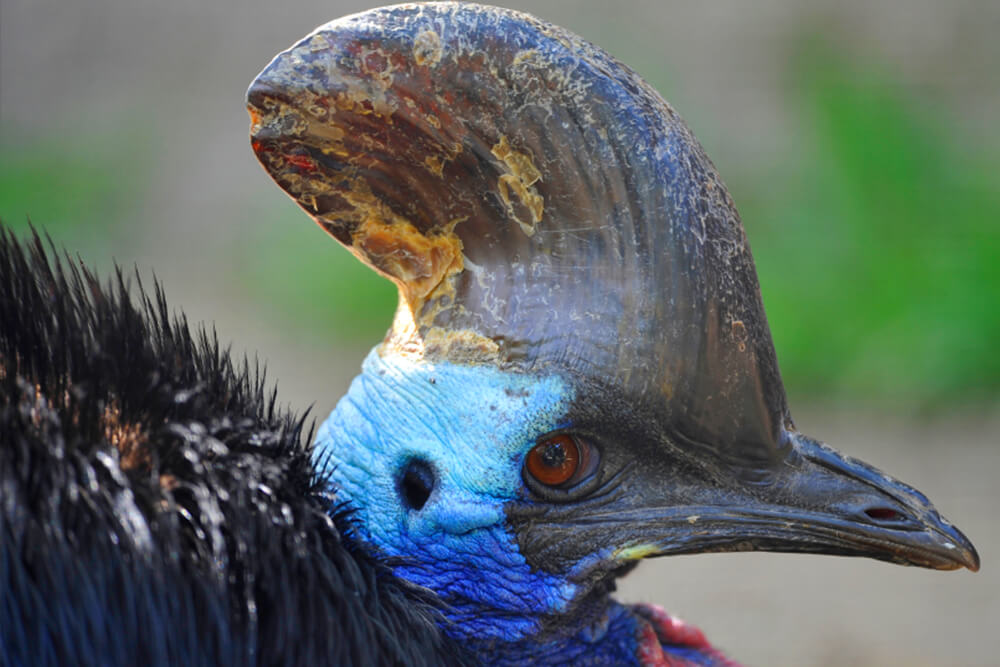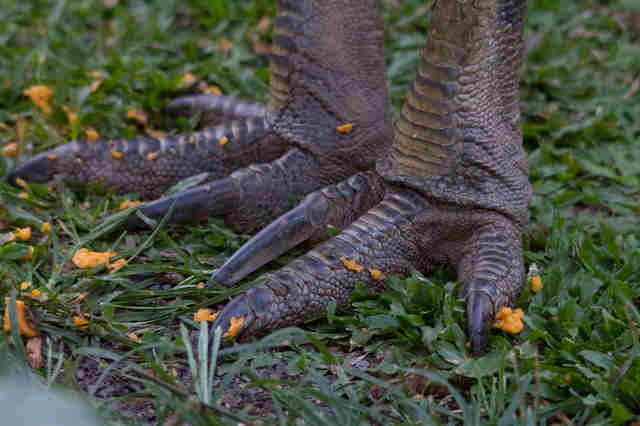
A captive cassowary, the large flightless animal considered the most dangerous of birds, killed a man Friday near Gainesville.
The Alachua County Sheriff’s Office is conducting a death investigation, spokesman Lt. Brett Rhodenizer said Saturday.
About 10:30 a.m., authorities received a call from a witness stating the man fell and had been attacked by the bird at a property off Alachua County Road 235 — northwest of the University of Florida in Gainesville — where the cassowary and other captive wildlife are housed.
The man, whose name was not released, had sustained “serious injuries” and was transported to a local hospital, said Alachua County Fire Rescue Deputy Chief Jeff Taylor in an email. He later died.
It is unclear if the man was the owner of the property or an employee.
Cassowary diets consist exclusively of fruit, but each of the birds’ three-toed feet hides a “dagger-like” claw on the inner toe that can grow up to 4 inches long, according to information published online by the San Diego Zoo. The birds are native to New Guinea and parts of Australia. A cassowary can also jump 7 feet into the air and run up to 31 mph.
The Florida Fish and Wildlife Conservation Commission classifies the cassowary among Class II wildlife, meaning they pose a threat to humans but can be owned with a permit.
“The cassowary can slice open any predator or potential threat with a single swift kick,” states information from the San Diego Zoo. “The cassowary is rightfully considered the most dangerous bird in the world!”
Southern cassowaries, the most well-known of the three cassowary species, can measure between 4 and 5.6 feet tall, with females weighing in at up to 167 pounds, according to the San Diego Zoo. Their head, neck and throat areas are featherless, which reveal bright blue skin. Keratin casques, or helmets, cover the heads of all three species.
The southern cassowary is considered endangered under Australia law and “vulnerable” on the International Union for Conservation of Nature Red List of Threatened Species.
The Alachua County Sheriff’s Office is coordinating with the Florida Fish and Wildlife Conservation Commission as it investigates the property.





/https://public-media.si-cdn.com/filer/1c/f0/1cf0345f-57e8-439c-ac36-b829a24f76af/southern_cassowary_jcb.jpg)




